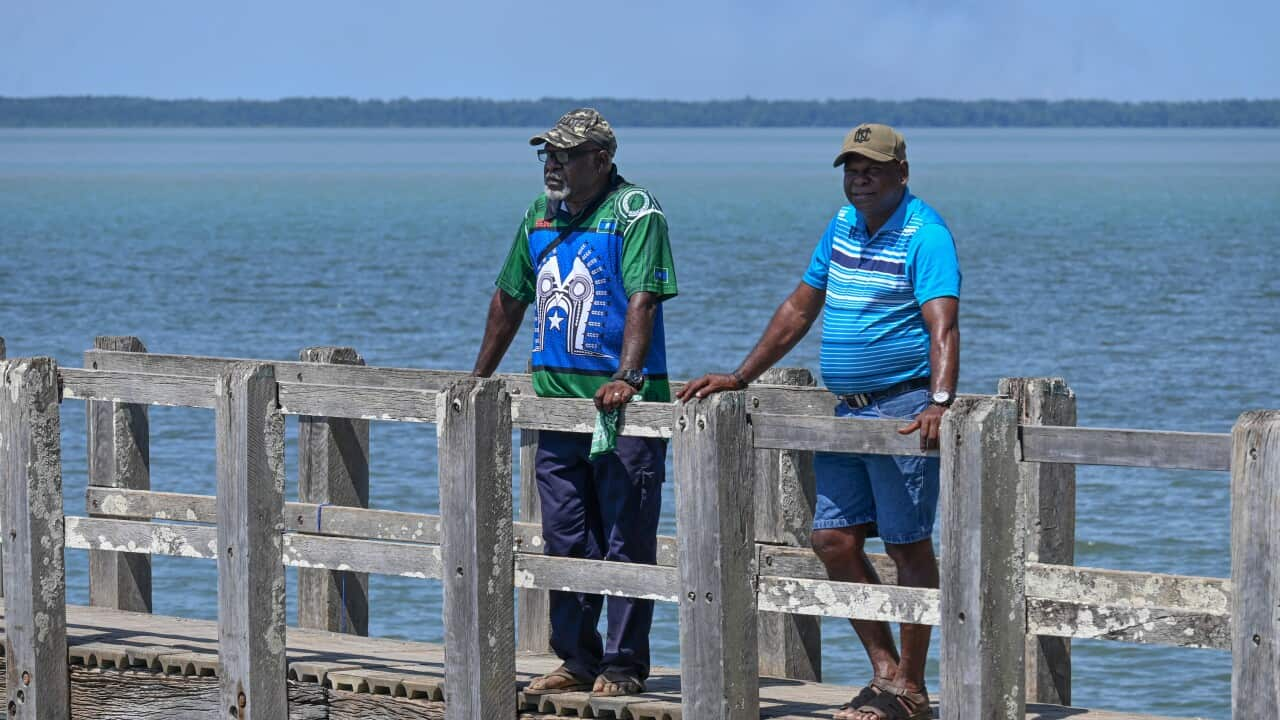Paul Kabai's ancestors have lived on the islands of Boigu and Saibai for over 65,000 years. Now, he fears an escalating climate crisis could flood the islands, forcing local communities to leave.
"Becoming climate refugees means losing everything: our homes, our culture, our stories and our identity," he said.
"If you take away our homelands, we don’t know who we are. We have a cultural responsibility to make sure that doesn’t happen and to protect Country and our communities, culture and spirituality from climate change."
Pabai Pabai also fears being forced to leave Boigu, with the island being core to his identity and cultural history.
“There are 65,000 years of wealth and experience here. Losing Boigu will mean losing that," he said.
"If you take us away from this island then we’re nothing. It’s like the Stolen Generation, you take people away from their tribal land, they become nobodies."
The two Wadhuam men are taking the Australian Federal Government to court in a bid to prevent the destruction of their communities by climate change.
A group of Torres Strait Islander people living off Australia's north coast filed a court claim against the Australian government on Tuesday, alleging it has failed to protect them from climate change which now threatens their homes.
The case brought on behalf of the remote islands of Boigu and Saibai in the Torres Strait is the first climate class action brought by Australia's First Nations people, its backers said.
It happened to be filed the same day that Canberra adopted a target of net-zero carbon emissions by 2050.
The case is being modelled on one that environmental group Urgenda Foundation led against the government of the Netherlands, saying it had a legal responsibility to protect Dutch citizens from climate change.
That case resulted in the Dutch High Court ordering the government to cut carbon emissions faster than planned.
The Torres Strait Islands, dotted north of Australia, face the threat of floods and salt ruining their soil as global warming leads to more storms and rising sea levels.
"There is high confidence that Torres Strait Island communities and livelihoods are vulnerable to major impacts of climate change from even small sea level rises," the claim filed with the Federal Court said.
The case is being supported by a non-profit advocacy group, Grata Fund, and Urgenda and is being run by class action firm Phi Finney McDonald.
Grata said it expects the case will be heard in the third quarter of 2022 with a decision likely to take up to 18 months.
The islanders filed a human rights complaint to the United Nations two years ago on similar grounds which has yet to be resolved.












